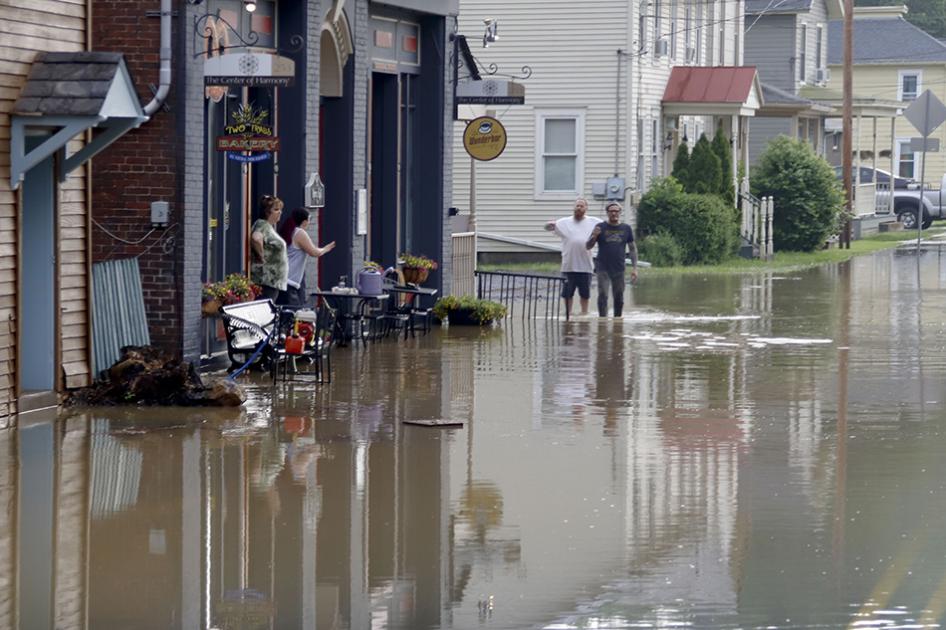
News from the central United States is full of natural disaster, sodden houses, and suffering as a flooding crisis continues in the region. The Anthropocene Alliance (Aa), an organization with more than 30 local and regional community leaders - mostly women - from 16 US states, is demanding action.
This week, they asked the US government to take “action now to stop development in wetlands and floodplains, reform flood insurance laws, and reduce human-caused greenhouse gases that cause global warming.”
Aa’s executive director, Harriet Festing, told me after disasters it’s often women who pull communities together and lead responses to climate change impacts. Human Rights Watch has seen this first-hand speaking to women in Puerto Rico, a US territory, in the aftermath of Hurricane Maria in 2017. Many women spoke about how, without any support from the US government, they and others took action and provided services, from thousands of meals to safe homes for domestic violence survivors.
Women community leaders we spoke to in Puerto Rico said they have never been consulted by government disaster experts about preparing for more extreme weather events, foreseeable because of climate change science. Activists, nongovernmental organization leaders, lactation consultants, ob-gyns, and others told us their work was taken for granted or ignored after the 2017 storm.
Women globally want states to take more action against climate change. On Friday, June 28, women leaders were at the United Nations Human Rights Council demanding not just that states reduce emissions but that women, who experience global warming impacts differently and often more severely than men, are empowered to protect communities. A new report mandated by governments at the council demands “full, equal, and meaningful participation of women with diverse backgrounds in climate change mitigation and adaptation at all levels.”
The Human Rights Council’s message matters for all women living with the impacts of climate change, including those facing flooding in the central US and in Puerto Rico. And it should matter to President Donald Trump.
He may have pulled the US out of the Human Rights Council and the Paris Accord on Climate Change, and ditched his predecessor’s climate action plan. But it’s time that he, and those who want his job in 2020, start paying attention to women, especially from poor and marginalized communities, on the front lines of climate change.